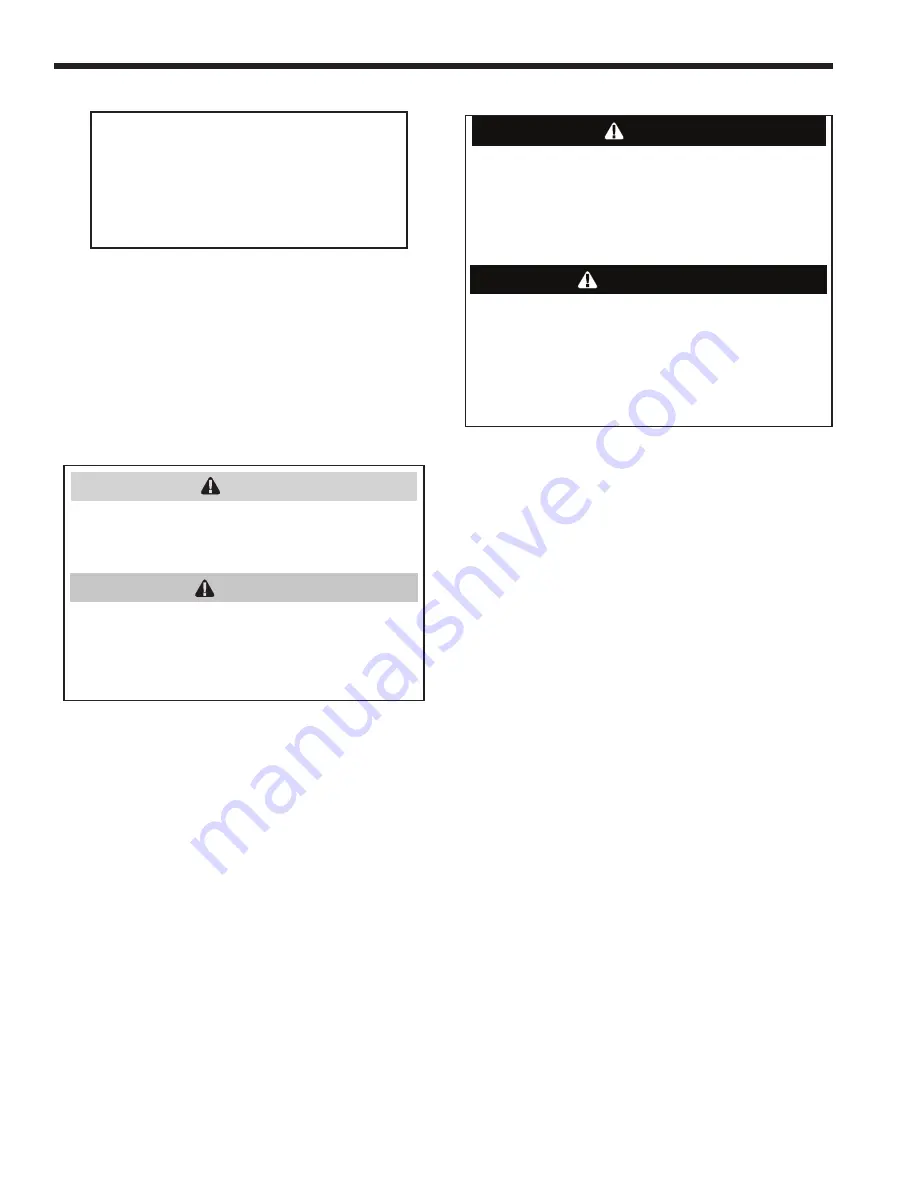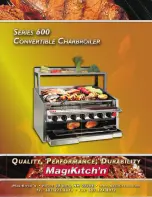
Page 18
NOTE
: The boiler and all other gas
appliances sharing the boiler gas supply
line must be firing at maximum capacity to
properly measure the inlet supply pressure.
Low gas pressure could be an indication of
an undersized gas meter and/or obstructed
gas supply line.
8. The correct manifold gas pressure is stamped
on the rating plate. The regulator is pre-set at
the factory, and normally requires no further
adjustment.
9. Before operating the boiler, the complete gas
supply system and all connections must be tested
for leaks using approved methods for the authority
having jurisdiction. Do not use an open flame.
10. Gas piping must be supported by suitable hangers
or floor stands and not supported by the boiler.
CAUTION
Some leak test solutions (including soap and
water) may cause corrosion or stress cracking.
Rinse the piping with water after testing.
ATTENTION
Certaines solultions d’essai d’étanchéité (y
compris l’eau et le savon) peuvent causer de la
corrosion ou de la fissuration. Rincez les tuyaux
à l’eau apprès l’essai d’étanchéité.
WARNING
The boiler is designed for use with either natural
gas or LP gas, but only ships from the factory as
natural gas. Conversion kits are available.
DO
NOT ATTEMPT TO CONVERT THIS HEATER
FOR USE WITH ANY OTHER TYPE OF FUEL.
AVERTISSEMENT
Le unit est conçu pour être utilisé avec du gaz
naturel ou du gaz LP, mais seulement des
navires de l’usine comme gaz naturel. Des
kits de conversion sont disponibles.
NE PAS
ESSAYER DE CONVERTIR CET APPAREIL À
UN AUTRE TYPE DE GAZ.
4.B LP Gas Conversion Kits
An LP (propane) conversion kit is available to field
convert this boiler to use LP gas. The boiler’s existing
gas valve is converted by changing the valve’s outlet
regulator spring and resetting the outlet pressure
regulator.
See Section 12.B on page 50 for kit part numbers.
The Gas Conversion Kit includes the following:
1. Gas valve regulator spring
2. Main Burner and Pilot Orifices
3. Installation Instructions
4. Conversion Label
4.C Special Precautions for LP Gas
LP (propane) gas is heavier than air and can therefore
more readily collect or pool in enclosed areas if
provision for proper ventilation is not made. Be sure to
pay special attention to proper ventilation for LP gas.
Locate boilers a safe distance from LP gas cylinders
and filling equipment. In the United States, consult
the “National Fuel Gas Code” ( NFPA 54 / ANSI
Z223.1, latest edition ) or in Canada, the Natural Gas
and Propane Installation Code ( CAN/CSA B149.1),
any local codes and fire protection authorities about
specific installation restrictions in your area.
LAARS Heating Systems
















































